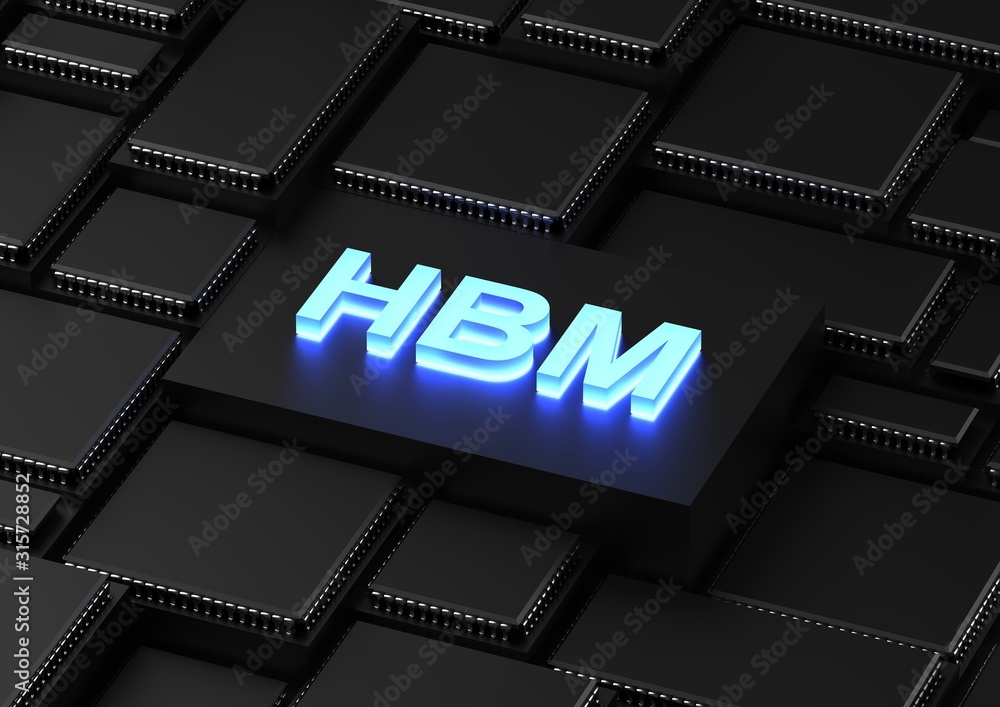
SEOUL/SINGAPORE – Samsung Electronics’ latest high bandwidth memory (HBM) chips have yet to pass Nvidia’s tests for use in the U.S. firm’s AI processors due to heat and power consumption issues, according to three individuals briefed on the matter. This delay in meeting Nvidia’s standards affects both Samsung’s HBM3 chips, which are widely used in graphics processing units (GPUs) for artificial intelligence, and the upcoming HBM3E chips slated for release this year.
Samsung’s HBM3 chips represent the fourth generation of high bandwidth memory technology, designed to enhance the performance of GPUs by stacking chips vertically to save space and reduce power consumption. The HBM3E chips are an advanced iteration expected to provide even greater efficiency and performance.
However, the failure to meet Nvidia’s rigorous testing standards, reported here for the first time, has raised significant concerns within the industry and among investors. Two of the sources indicated that recent tests in April for Samsung’s 8-layer and 12-layer HBM3E chips did not meet Nvidia’s requirements, which has further delayed the approval process.
In response to the reports, Samsung emphasized that HBM is a customized memory product requiring optimization in line with customer needs. “We are in the process of optimizing our products through close collaboration with customers,” Samsung stated, though it declined to comment on specific clients.
Following the initial publication of this report by Reuters, Samsung issued a separate statement denying claims that the chips failed due to heat and power consumption issues. “Testing is proceeding smoothly and as planned,” the company asserted. Nvidia chose not to comment on the matter.
Nvidia holds approximately 80% of the global GPU market for AI applications, making their approval crucial for HBM manufacturers. Passing Nvidia’s tests is not only a reputational milestone but also a significant factor for future profit momentum.
Samsung has been attempting to pass these tests since last year, and the delay has sparked industry worries that the company may lag further behind competitors SK Hynix and Micron Technology, both of whom are making significant strides in the HBM market.
- Samsung’s HBM3 and HBM3E chips failed to pass Nvidia’s tests due to heat and power issues.
- The delay raises concerns about Samsung’s competitiveness in the HBM market.
- Samsung denied the claims, stating that testing is proceeding as planned.
- Nvidia holds a dominant position in the GPU market, making their approval critical.
In contrast to Samsung, SK Hynix has successfully supplied Nvidia with HBM3 chips since June 2022 and began shipping HBM3E chips to an undisclosed customer, presumed to be Nvidia, in late March. Micron, another key player, has also committed to supplying Nvidia with HBM3E chips.
In a strategic move indicating its concerns over its position in the HBM market, Samsung recently replaced the head of its semiconductor unit. The company cited the need for new leadership to navigate what it described as a “crisis” in the industry.
Despite high market expectations for Samsung to quickly pass Nvidia’s tests, industry experts, such as Jeff Kim from KB Securities, note that the specialized nature of HBM products means that thorough optimization and customer-specific performance evaluations are natural and necessary steps.
Samsung’s failure to secure Nvidia’s approval has not gone unnoticed by the market. Samsung’s shares dipped 2% in early Friday trade, reflecting broader market concerns. Meanwhile, shares of SK Hynix and Micron have surged, with year-to-date increases of 42% and 48%, respectively.
Market Performance
| Company | Year-to-Date Share Performance |
|---|---|
| Samsung | -2% |
| SK Hynix | +42% |
| Micron | +48% |
The demand for high bandwidth memory is driven by the growing needs of AI applications, which require efficient data processing capabilities. HBM, a type of dynamic random access memory (DRAM), is crucial for handling the massive data loads generated by AI technologies.
- HBM technology stacks chips vertically, optimizing space and power consumption.
- AI applications are driving increased demand for sophisticated GPUs.
- Nvidia’s approval is key for HBM manufacturers to gain market share and credibility.
At Nvidia’s AI conference in March, CEO Jensen Huang highlighted the importance of Samsung’s 12-layer HBM3E by signing a placard at Samsung’s booth. This gesture underscored Nvidia’s interest in Samsung’s potential as a supplier.
Research firm Trendforce predicts that HBM3E chips will dominate the market this year, with shipments peaking in the latter half of 2024. SK Hynix estimates that the demand for HBM chips will grow at an annual rate of 82% through 2027.
Analysts suggest that SK Hynix’s technological edge stems from a decade of focused research and development in HBM technology. Samsung, despite being the world’s largest memory chip maker, has lagged in this specialized area. Nonetheless, Samsung maintains that it developed the first commercial HBM solution for high-performance computing in 2015 and continues to invest in this technology.
The ongoing optimization and testing of Samsung’s HBM chips highlight the complexities of meeting the performance standards required by leading GPU manufacturers like Nvidia. While Samsung works to address these challenges, the competitive landscape in the HBM market remains dynamic, with significant implications for market shares and technological advancements. As the demand for AI-driven applications grows, the stakes for HBM suppliers continue to rise, emphasizing the critical role of innovation and collaboration in this rapidly evolving industry.
Related News:
Featured Image courtesy of Adobe Stock
